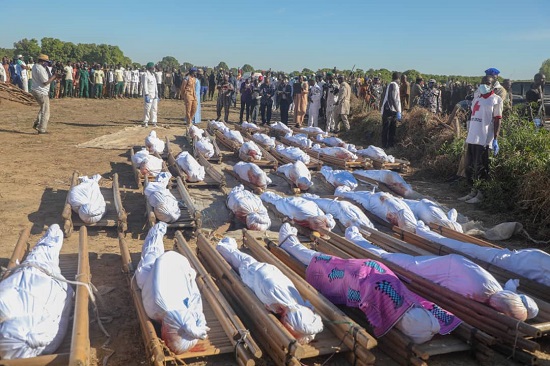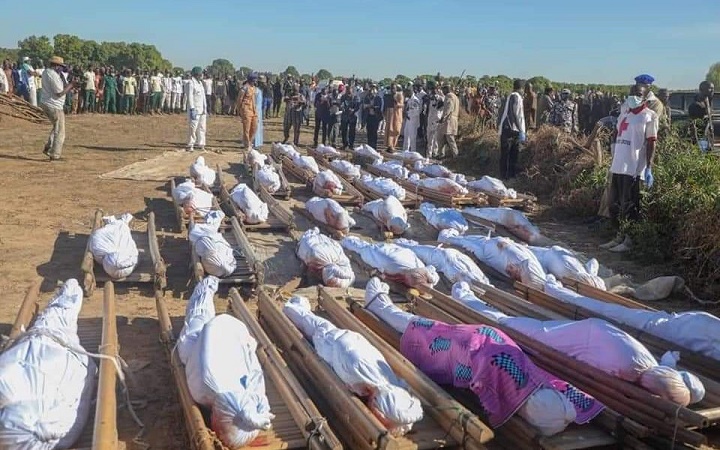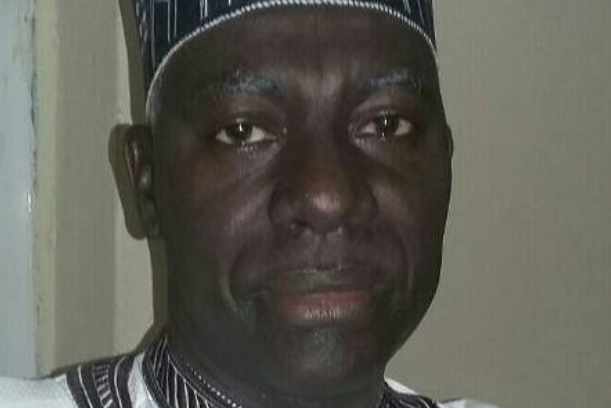Hello there, it is great to be “on the same page” with you. In this column, I will be sharing My Perspective on different issues around Education and Leadership. As an avid history buff and a keen observer of the development of nations, I have come to the full realization that the twin towers of quality education and good leadership at every level of society are indispensable to the continuous socio-economic development of any nation. I look forward to your engagements with me on this platform as I share My Perspective on these issues every fortnight.
Today, my thoughts are about the Teacher Question. How critical is their role in improving the education outcomes in Nigeria?
There is a strong correlation between access to quality education and the socio-economic development of any nation. A report by the Organization for Economic Cooperation and Development (OECD) shows that increasing access to education and the skills needed to participate fully in society would significantly boost the GDP in lower-income countries by an average of 28% per year and 16% per year in high-income countries. An example of this is South Korea. With a 78% illiterate population after the Korean War, and a per capita income of US $200 in 1970, the World Bank Group considered South Korea to be too risky for even the lowest interest rate loans. Convinced that education was the best way to pull their country out of misery, the South Korean Government focused on overhauling schools and committed to providing quality education for every child. Today, South Korea has a 98% literacy rate and is a high-income country with a per capita income that surpasses US$30,000. A nation once labelled one of the poorest is now the 12th largest economy in the world.
The former president of South Africa, Nelson Mandela captured the importance of education aptly by saying “Education is the most powerful weapon which you can use to change the world .” Governments worldwide, more than ever before, are investing billions of dollars on educating their citizens, while a growing proportion of the middle class is spending more of its income on educating their families.
Advertisement
However, like any human endeavour, education all over the world faces many challenges and there is a continuous debate about the state of education worldwide. Even before the recent disruption by the COVID19 pandemic, experts agree that some of the challenges with education ranged from inadequate funding to lack of access to good education and outdated curriculum. Of course, the pandemic has changed the dynamics now, however, one challenge that cuts across every educational system globally is the continuous plea for improved Teacher Effectiveness, Quality and Development. This challenge poses a recurrent question, which is being discussed globally; what is the most critical determinant of a truly qualitative education system? Is it the provision of state-of-the-art infrastructure – conducive for learning, or the design of an all-encompassing curriculum relevant to today’s economic needs? Perhaps, we should increase the use of technology or completely restructure the management models of our schools – enabling the private sector to play a more decisive role? How important are the teachers and their development to the attainment of quality education for all? These questions have been debated all over the world.
A growing body of evidence however suggests that the education crisis, at its core, is a Teaching Crisis. To deliver good education, we need good teachers. Teachers, in my opinion, are the singular most important factor in the provision of quality education in Nigeria and any other country in the world. Their effectiveness is the most important predictor of student learning.
The teacher crisis being faced worldwide ranges from lack of teachers in some places to lack of motivation for the available teachers in some other places. Globally, the UN estimates that 69 million new teachers are required to achieve universal primary and secondary education by 2030. However, there is also the issue of untrained or undertrained teachers for which the UN states that in 1 out of every 3 countries in the world, less than 60% of teachers are trained to national standards.
Advertisement
Here in Nigeria, the issue with teacher education and development is multi-faceted and needs urgent attention. These issues range from low pay and motivation for teachers to the perception that only the least qualified candidates become teachers. Another challenge is the incredibly low competency level of most of the teachers. For example, in 2014, Service Delivery Indicator survey investigating teacher knowledge across some sub-Saharan countries including Uganda, Kenya, Nigeria, Togo, Tanzania, Mozambique and Senegal, showed that Nigeria was among the lowest 3 countries.2
Like the rest of the world, we must explore innovative ways to solve these issues. It is gratifying to know that governments at federal and state levels are making efforts to engage these challenges but there is so much more to be done.
To improve the quality of our teachers and bring them up to par with their counterparts around the world, there are a number of questions we should give careful thoughts to. We should answer questions like; How much involvement of the private sector is needed in the delivery of good education and how should they be engaged? Are we maximizing the use of technology? What clear standards are we holding our teachers to and are we paying them liveable wages?
My friend, these issues and more I will endeavour to elucidate further in the subsequent releases on this column. As I conclude today, let me leave you with the words of Lee Iacocca who said: “In a completely rational society, the best of us would be teachers and the rest of us would have to settle for something else.”
Advertisement
Till the next time we meet here, remember we all have “A Role to Play”.
Cheers.
Notes
(1) https://www.globalcitizen.org/en/content/10-barriers-to-education-around-the-world-2/
(2) Bold, T., Filmer, D., Martin, G., Molina, E., & Stacey, B. (2016). What Do Teachers Know and Do?
Advertisement
Views expressed by contributors are strictly personal and not of TheCable.
Add a comment







